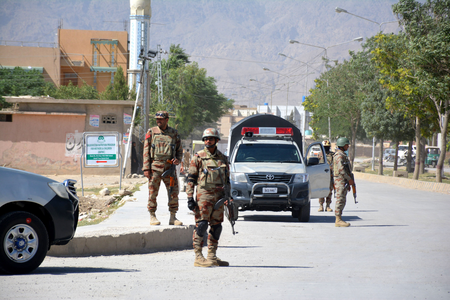
New Delhi, Aug 4 (IANS) Reports of human rights violations in Pakistan-occupied Kashmir are not isolated incidents but part of a broader pattern.
The United Nations Office of the High Commissioner for Human Rights (OHCHR), in its 2018 and 2019 reports on Kashmir, documented allegations of enforced disappearances, custodial torture, and restrictions on freedom of expression in Gilgit Baltistan (GB).
The unauthorised grip of Pakistan over the region often comes to the fore in local media outlets. They have covered instances of gender-based violence and suppression of minority voices, particularly in areas where military presence is heavy.
The Asian Human Rights Commission (2021) further highlighted the lack of judicial recourse for victims, noting that military courts often bypass civilian legal frameworks. The ecological cost of Islamabad’s developmental policies in the region has been severe.
According to the Pakistan Forest Institute (2020), GB has lost over 30 per cent of its forest cover in the past two decades due to unchecked logging and infrastructure projects.
This deforestation has exacerbated the frequency and intensity of flash floods, as documented by WWF Pakistan and ReliefWeb following the 2022 monsoon season.
In 2017, protests erupted in Muzaffarabad and Neelum Valley against illegal timber trade allegedly backed by local officials and military-linked contractors. Coverage by some prominent newspapers revealed that despite public outcry, no substantive action was taken to halt the deforestation, raising concerns about institutional complicity.
While the region generates significant revenue through tourism and natural resources, local communities see little benefit. The Pakistan Tourism Development Corporation (PTDC) reported that GB attracted over 1.2 million tourists in 2023, yet most of the revenue is funnelled into military-run enterprises or Islamabad-based agencies.
Land appropriation by the military has also intensified. The International Commission of Jurists (2022) noted that thousands of acres in Skardu and Hunza have been transferred to the Pakistan Army under the guise of “strategic development.”
Local protests, covered by various television channels and prominent newspapers, have been met with arrests and media blackouts. Subsidies for basic commodities remain elusive.
According to a prominent business daily, residents of GB pay higher rates for wheat and electricity than those in Punjab or Sindh, despite the region’s harsh terrain and limited infrastructure. This economic disparity has fuelled resentment and calls for provincial status, which Islamabad continues to deflect.
Tourism, once a community-driven enterprise, is now largely monopolised by military-linked corporations. Investigative reports have exposed how hotels, transport services, and even trekking permits are controlled by entities affiliated with the Pakistan Army.
Local entrepreneurs, interviewed by news reporters, lament that they are being edged out of the market despite years of investment and experience.
Pakistan-occupied Kashmir stands at a crossroads. While its natural beauty and strategic importance are undeniable, the region’s people continue to suffer under a regime that prioritises control over accountability.
As international attention remains fixated on the Line of Control, the lived realities of those in PoJK and GB demand urgent redress – from constitutional recognition and human rights protections to ecological restoration and economic equity. Without meaningful reform, the region risks becoming not just a geopolitical flashpoint, but a humanitarian and environmental tragedy in slow motion.
–IANS
sktr/dan



